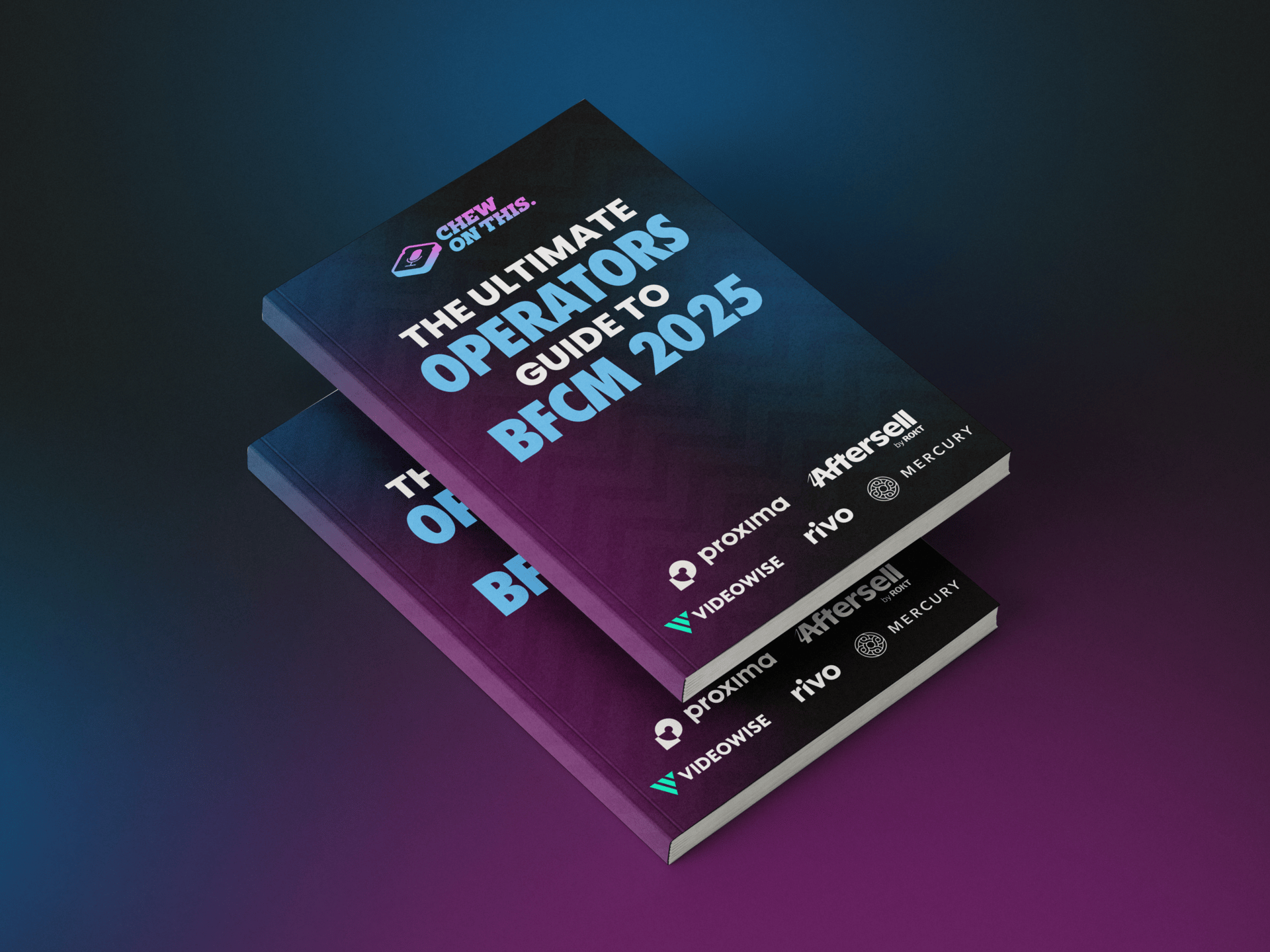Hey everyone,
Welcome back for another bite to chew on.
There's a conversation happening right now in boardrooms across DTC.
It's not about discount percentages or creative hooks or whether to run Advantage+ campaigns. It's about a fundamental question that's reshaping how sophisticated brands think about growth:
What if everything we think about BFCM is wrong?
Clickbait lead, we know.
But it’s true.
If you fell asleep as a DTC operator just a few years ago and then woke up today, the environment would look VERY different. Black Friday included. It’s one of those major ecom events that has drastically evolved over the years, in response to the changing landscape around us.
Today, we want to talk about that evolution and how you should be changing as a brand to meet it.
On the Menu:
The quiet Q4 revolution
4 core principles of the new Q4
Your complete guide to crushing BFCM 2025 (Free resource below)
The quiet Q4 revolution
Here's what we've learned from our own efforts over the years and observed from the inside of dozens of other 8 and 9-figure brands…
The fundamentals of Q4 commerce have been shifting beneath our feet for years, and 2025 represents a tipping point.
Consider what's happened over the last half-decade:
Customer acquisition costs have climbed relentlessly across every channel.
Competition has intensified in virtually every category.
The cost of money itself has increased, both in terms of higher interest rates and inflation eating into real margins.
And now, tariffs are adding another layer of pressure to already-stretched unit economics.
Meanwhile, BFCM has evolved from a weekend sprint to a months-long marathon. Brands begin their holiday planning in September. Consumers start shopping in October. CPMs start inflating weeks before Black Friday arrives.
What once worked (steep discounts for 72 hours) now represents a path to financial ruin for most DTC brands.
The Old Game: Offering mass discounts across your products for the weekend.
You'd slash margins, hope volume made up for it, and celebrate if you beat last year's revenue numbers. It worked when acquisition was cheap, margins were fatter, and competition was thin.
The New Reality: Build systems that capture and compound value over time.
You're paying premium prices to acquire customers in an environment where every cost center (shipping, COGS, financing, marketing, etc.) has expanded. The only way to win is to extract dramatically more value from each customer relationship than a single discounted purchase.
The market is forcing this evolution whether we like it or not…
CPMs that double during peak season. Consumers who've been trained to expect discounts. Return rates that can wipe out entire profit margins. Cash conversion cycles that turn "record months" into operational nightmares.
We're seeing a clear divide: operators who think in weeks and vanity metrics vs. operators who think in years and optimize for real value.
Note: Everything you read in this newsletter is a summary of our new resource:
The Ultimate Operators Guide to BFCM 2025
👉 Click here to download the full resource for free.
4 core principles of the new Q4
After analyzing the playbooks of dozens of operators building real wealth, we've identified four core principles that separate the winners from the wannabes:
Principle 1: Margin is Sacred
Revenue without profit is just an expensive ego stroke. True wealth builders start every BFCM conversation with contribution profit, not top-line targets.
They create offers and tactics that maintain margin, but retain the perceived value that holiday shoppers are looking for, so they can still leverage the huge wave of demand.
Principle 2: Time Horizons Matter
While everyone else is optimizing for the weekend, they're thinking about the quarter. Then the year. Then the decade. Every decision gets filtered through: "Does this build long-term value or just extract short-term revenue?"
Principle 3: Systems Beat Tactics
They don't rely on heroic weekend execution. They build systems that work whether they're in the office or on vacation. Systems for creative testing. Systems for inventory management. Systems for customer retention.
Principle 4: Customers Are Assets, Not Transactions
They don't just acquire customers during BFCM. They acquire future cash flows. Every acquisition decision gets evaluated through the lens of lifetime value, not just cost per acquisition.
This means thinking about cash flow as much as conversion rates. Understanding per-SKU margins as deeply as click-through rates. Building retention systems that turn bargain hunters into lifetime advocates.
Your new guide to BFCM
The tactical expression of this philosophy is what separates theory from results.
Instead of planning discounts, they're planning customer journeys. Instead of maximizing weekend revenue, they're maximizing 90-day profit pools. Instead of hoping for the best operationally, they're building redundancy and resilience.
That’s how Brands can use Q4 to build sustainable competitive advantages instead of just hitting quarterly numbers.
This shift in thinking is happening, but it's happening quietly. The operators who've figured it out aren't exactly publishing case studies about their strategic advantages.
That's why we put together the frameworks, systems, and tactical implementations that make this philosophy work in practice.
We made The Ultimate Operators Guide to BFCM 2025 to be the bridge between the philosophy and the practice. Between the mindset and the mechanics.
Sum It Up
The BFCM game is changing, and the operators who recognize it first will build the most wealth.
The old playbook of discount deep, hope for the best, and celebrate weekend wins is becoming a path to mediocrity at best (and bankruptcy at worst).
The new playbook treats Q4 for what it really is: the biggest wealth-building opportunity of the year for brands that know how to think systematically and engineer long-term growth.
The question isn't whether this shift is happening. The question is whether you'll be the one to make the change with it.
👉 Get The Ultimate Operators Guide to BFCM 2025 and join the operators building wealth, not just hitting numbers.
All the best,
Ron & Ash




